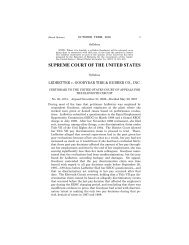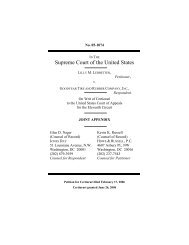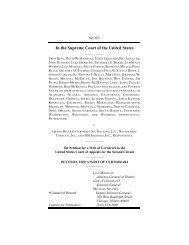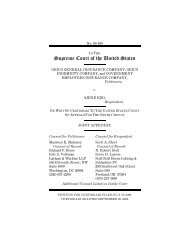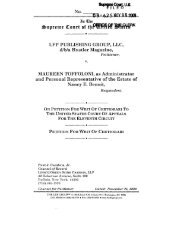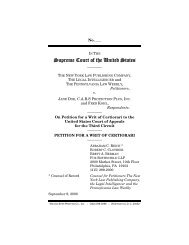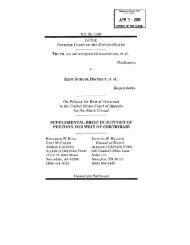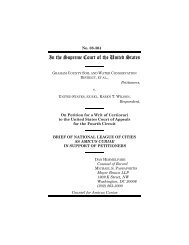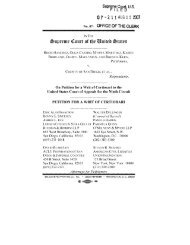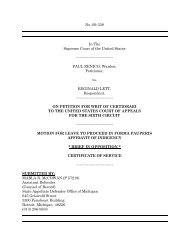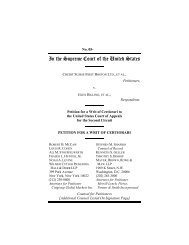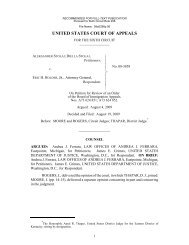Petition for certiorari - SCOTUSblog
Petition for certiorari - SCOTUSblog
Petition for certiorari - SCOTUSblog
You also want an ePaper? Increase the reach of your titles
YUMPU automatically turns print PDFs into web optimized ePapers that Google loves.
qualifications or experience of the analysts who<br />
conducted the testing. They do not indicate whether<br />
any recordkeeping or storage measures had been<br />
taken to preserve the integrity of the items <strong>for</strong> testing.<br />
They do not identify the testing method the analysts<br />
used to arrive at their conclusions or describe any<br />
difficulties (and accompanying error rates) associated<br />
with the particular method(s) the analysts used to test<br />
<strong>for</strong> cocaine. Nor do the reports specify the percentages<br />
of cocaine allegedly present in the substances tested or<br />
otherwise address the differences in the samples that<br />
account <strong>for</strong> why some of the bags contain white powder<br />
and others contain dark yellow solids. The reports do,<br />
however, provide what the Commonwealth needed to<br />
prosecute a criminal case against <strong>Petition</strong>er: declarations<br />
from state <strong>for</strong>ensic analysts that the packages<br />
seized in connection with <strong>Petition</strong>er’s arrest weighed<br />
over fourteen grams and all contained cocaine.<br />
3. The Commonwealth charged <strong>Petition</strong>er with<br />
distributing cocaine and with trafficking in cocaine in<br />
an amount between fourteen and twenty-eight grams.<br />
See Mass. Gen. Laws ch. 94C §§ 32A & 32E(b)(1).<br />
At trial, the prosecution offered the laboratory<br />
reports during a police officer’s testimony as proof that<br />
the four bags recovered from Wright and the nineteen<br />
bags found in the police cruiser contained, respectively,<br />
4.75 and 22.16 grams of substances containing<br />
cocaine. <strong>Petition</strong>er objected and specifically cited<br />
CrawYord v. Wa~l~ington, 541 U.S. 36 (2004), to signal<br />
that introducing these reports without also calling to<br />
the stand the analysts who prepared them would<br />
violate his Sixth Amendment right to confrontation.<br />
Tr. at 2/81, 2/98. The trial court overruled the



